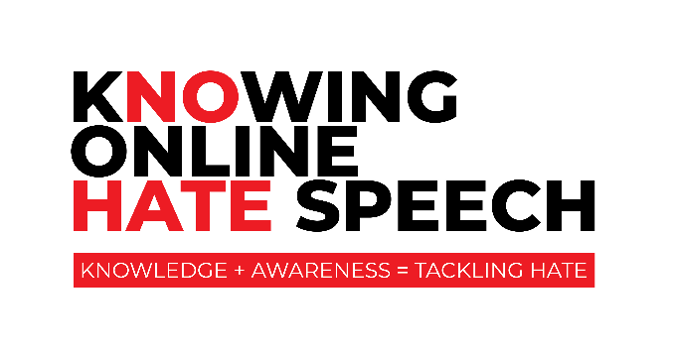Identificação e caracterização da dislexia em estudantes universitários portugueses
Investigadora
Adultos com dislexia parecem apresentar a maioria dos défices que são comummente observados em crianças com dislexia. Tal como as crianças com dislexia, mais vezes estudadas, adultos com dislexia têm dificuldades em segmentar as palavras em sons, de memória de trabalho, de nomeação rápida, entre outras, além das dificuldades na leitura e na escrita. No entanto, enquanto nas crianças com dislexia as dificuldades de precisão na leitura e na escrita (i.e., ortografia) podem ser o principal sintoma da dislexia, alguns adultos com dislexia, em particular aqueles com elevada escolaridade, podem ter ultrapassado ou mitigado este tipo de dificuldade. Alguns défices podem ter sido compensados, enquanto outros podem manifestar-se de forma diferente, eventualmente mais acentuada, quando comparados com as crianças. Além disso, as características do sistema de escrita onde aprenderam a ler e a escrever pode ter influência na manifestação das dificuldades. O Português Europeu (PE) é um sistema que se caracteriza como de grau intermédio de opacidade, com características próprias e distintas dos demais sistemas onde esta população (estudantes universitários com diagnóstico de dislexia) tem vindo a ser estudada. Como identificar a dislexia e caracterizá-la e quais os seus preditores cognitivos constituem as questões de investigação deste projeto
Informação do Projeto
2023-12-01
2024-12-31
Parceiros do Projeto
- BRU-Iscte (Data Analytics)
- CIIEM - (Portugal)
- FPUL - Líder (Portugal)
Impact and capacity Assessment Framework for U-space Societal Acceptance
Investigadora
ImAFUSA focuses on quantifying a variety of understudied factors influencing societal acceptance of UAM in urban, peri-urban and inter-urban areas, especially when these are deployed using U3 and U4 services. The Project will deliver an “Impact and capacity Assessment Framework for U-space Societal Acceptance” (ImAFUSA) to assist Local Authorities and other U-space stakeholders and users with the delivery of socially acceptable and beneficial UAM deployment in cities. The framework and its tools will provide insights into 3 major areas influencing societal acceptance: environmental impact (including noise, visual pollution and air quality), safety and socioeconomic impact (including affordability, accessibility, economic development, public space use and connectivity). In each area, innovative performance indicators will be described while mathematical formulas and algorithms will be developed to quantify them. Data on citizen noise perceptions, perceptions of visual pollution, safety perceptions and overall UAM acceptance will be collected during 3 immersive citizen experiences of UAM applications in the city of Athens, Greece. The usability of the developed indicators will be tested in a simulation environment simulating real future use cases with a varying volume and configuration of movements in U-space.
Informação do Projeto
2023-09-01
2026-02-28
Parceiros do Projeto
- BRU-Iscte (Gestão) - Líder
- Future Needs - (Chipre)
- KTH - (Suécia)
- T.U. DELFT - (Países Baixos (Holanda))
- ICCS - (Grécia)
- AFT - (República Checa)
- EGALEO - (Grécia)
- USAL - Parceiro Associado (Reino Unido)
kNOwing online HATE speech: knowledge + awareness = TacklingHate
Investigadora
Despite the Union’s effort to fight against online hate speech (OHS), several reports showed an increase in OHS during 2020-21. The current pandemic provided a context for increased scapegoating and stigmatization, and minority groups are disproportionally targets of hatred discourse. OHS is a persistent threat to the Union’s values and there is a need for more knowledge on its content, detection and countering, as highlighted in the current Call. Portugal, as other member states, has seen an escalation of hate speech against immigrants, racial/ethnic groups, and LGBTIQ communities.
However, there is no systematized knowledge nor tools designed to detect, monitor and prevent OHS against these communities. Our project aims at addressing this need, offering a comprehensive, participatory and culturally sensitive approach to analyse, detect, and counter, direct and indirect OHS in Portuguese language.
Informação do Projeto
2022-03-01
2024-08-31
Parceiros do Projeto
- CIS-Iscte (PsyChange) - Líder
- BRU-Iscte
- ISTAR-Iscte
- CIES-Iscte
- INESC-ID - (Portugal)
- IST-ID - (Portugal)
- ILGA Portugal - (Portugal)
- CBL - (Portugal)
- CICDR/ACM - (Portugal)
- SOS RACISMO - (Portugal)
Erro de não-resposta nas sondagens telefónicas com telemóveis: causas, efeitos e correcções
Investigadora
As não-respostas constituem uma das maiores preocupações na realização de sondagens. Qualquer sondagem, independentemente do método de recolha adoptado, é afectada pela dificuldade em contactar e/ou conseguir a colaboração das pessoas. As sondagens por telemóvel não são excepção a esta situação. A recolha e análise de paradados no contexto das sondagens por telemóvel é essencial na investigação das causas e das consequências da não-resposta nos resultados da sondagem. A compreensão do mecanismo gerador de não-respostas e dos seus efeitos é indispensável para a implementação de estratégias eficientes de contacto e para o desenvolvimento de procedimentos de ajustamento dos resultados que minimizem o efeito das não-respostas no erro da sondagem. Este projecto teve três linhas de investigação, correspondentes a três objectivos interligados: (1) Identificar os determinantes mais significativos da não-resposta nas sondagens por telemóvel, de entre um conjunto de factores relativos ao processo da sondagem e a atributos dos elementos da amostra seleccionados, (2) Medir o impacto da não-resposta nos resultados da sondagem - em que medida respondentes e não-respondentes são diferentes e como é que as não-respostas afectam as estimativas da sondagem e (3) Definir mecanismos de ajustamento das respostas para atenuar o efeito das não-respostas.
Informação do Projeto
2012-03-01
2015-02-28
Parceiros do Projeto

 English
English


